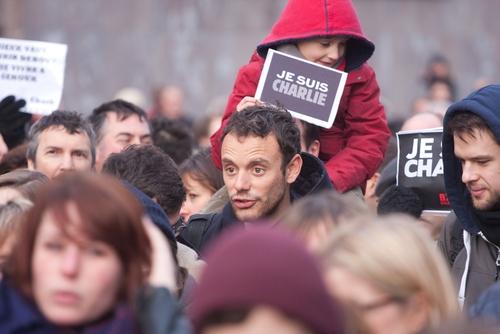We in America need to re-read and cling to our constitution, and especially to our Bill of Rights. We need to teach their importance to our children, particularly the importance of the first amendment, the most fundamental of freedoms upon which all the rest reside: the freedom of speech.
Because some numbskulls are starting to wonder whether America should be more like Europe and be more restrictive about free speech.
“In much of the developed world, one uses racial epithets at one’s legal peril, one displays Nazi regalia and the other trappings of ethnic hatred at significant legal risk and one urges discrimination against religious minorities under threat of fine or imprisonment,” Frederick Schauer, a professor at the John F. Kennedy School of Government at Harvard, wrote in a recent essay called “The Exceptional First Amendment.”
“But in the United States,” Schauer continued, “all such speech remains constitutionally protected.”
Canada, Britain, France, Germany, the Netherlands, South Africa, Australia and India all have laws or have signed international conventions banning hate speech. Israel and France forbid the sale of Nazi items like swastikas and flags. It is a crime to deny the Holocaust in Canada, Germany and France.
Last week, the actress Brigitte Bardot, an animal rights activist, was fined €15,000, or $23,000, in France for provoking racial hatred by criticizing a Muslim ceremony involving the slaughter of sheep.
By contrast, U.S. courts would not stop the American Nazi Party from marching in Skokie, Illinois, in 1977, though the march was deeply distressing to the many Holocaust survivors there.
Six years later, a state court judge in New York dismissed a libel case brought by several Puerto Rican groups against a business executive who had called food stamps “basically a Puerto Rican program.” The First Amendment, Justice Eve Preminger wrote, does not allow even false statements about racial or ethnic groups to be suppressed or punished just because they may increase “the general level of prejudice.”
Some prominent legal scholars say the United States should reconsider its position on hate speech.
“It is not clear to me that the Europeans are mistaken,” Jeremy Waldron, a legal philosopher, wrote in The New York Review of Books last month, “when they say that a liberal democracy must take affirmative responsibility for protecting the atmosphere of mutual respect against certain forms of vicious attack.”
Waldron was reviewing “Freedom for the Thought That We Hate: A Biography of the First Amendment” by Anthony Lewis, the former New York Times columnist. Lewis has been critical of attempts to use the law to limit hate speech.
[…]
Harvey Silverglate, a civil liberties lawyer in Boston, disagreed.“When times are tough,” he said, “there seems to be a tendency to say there is too much freedom.”
“Free speech matters because it works,” Silverglate continued. Scrutiny and debate are more effective ways of combating hate speech than censorship, he said, and all the more so in the post-Sept. 11 era.
“The world didn’t suffer because too many people read ‘Mein Kampf,”‘ Silverglate said. “Sending Hitler on a speaking tour of the United States would have been quite a good idea.”
Bravo, Mr. Silverglate! Bravo!
When people are free to speak their minds, you know who they are and what they’re standing for. If they want to show a nazi flag, well…you know who and what they are, don’t you? You know what you’re dealing with. It’s honest. It’s open. It’s free. If a feeling gets hurt, aw, that’s too bad.
Hurt feelings are the price of freedom, and I’d rather have 50 emails calling me all sorts of names because of my Christianity or my classically liberal politics (some call it “conservatism,” but then again today’s “conservatives,” used to be called “liberals,” and today’s “liberals” used to be called “socialists”, so deal) or because of my stance on any given issue, than have everyone moving about the country in a silent agony of self-censorship and repression.
Free speech is part of what makes America great, and singular. It is what leaves America unbent when the rest of the world is cowering. Americans will die for freedom – for the freedom to say what they like, be who they are and to bend the knee only if they choose to do so, and then (usually) before no one but the Creator.
And they’ll die helping to bring that sort of freedom to others.
You don’t surrender your right to speak freely in some misbegotten effort to legislate “niceness.” To do that is to admit you are too frightened to be free.
Wusses.
Jonah Goldberg has more thoughts on that NY Times article and they’re well-worth reading.
Related: Watch this film










